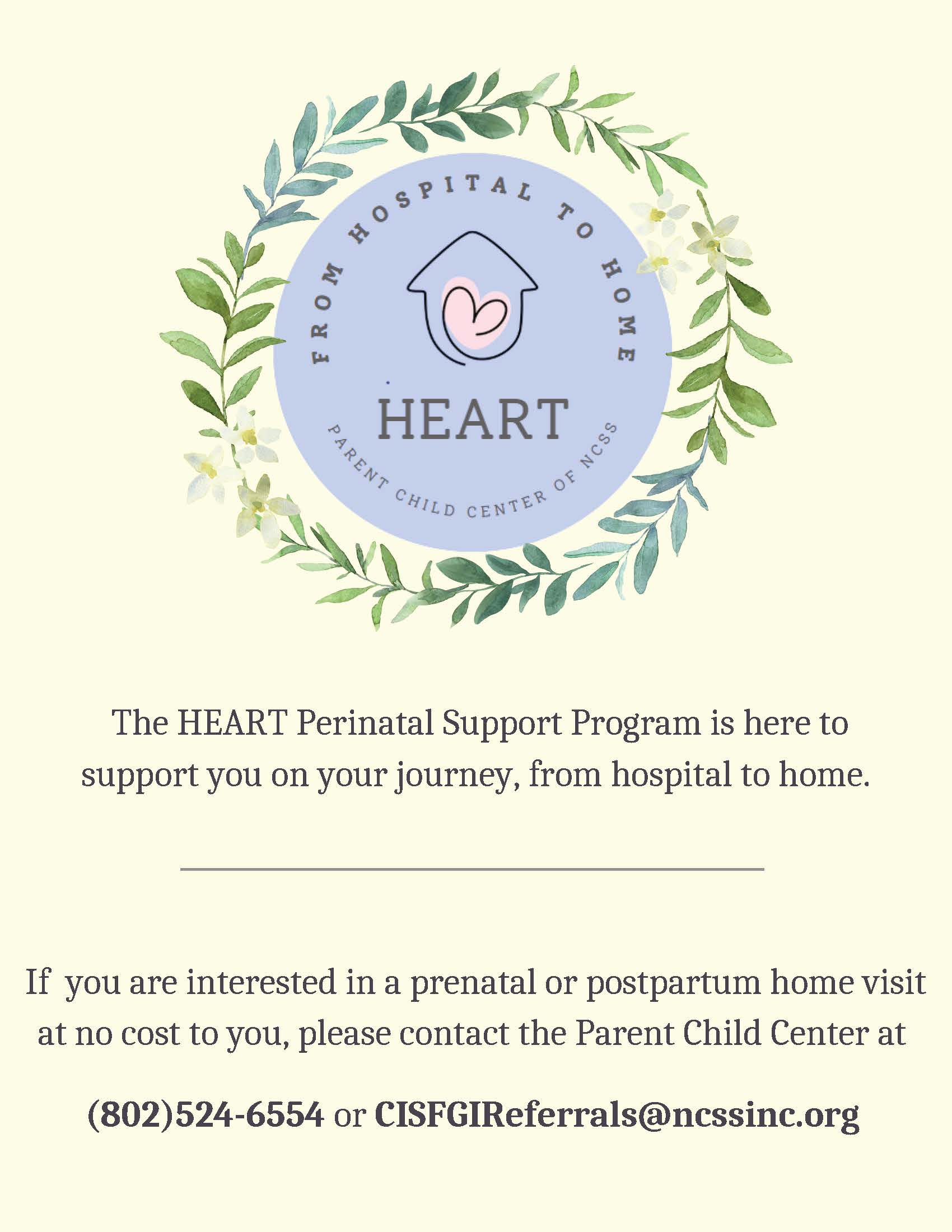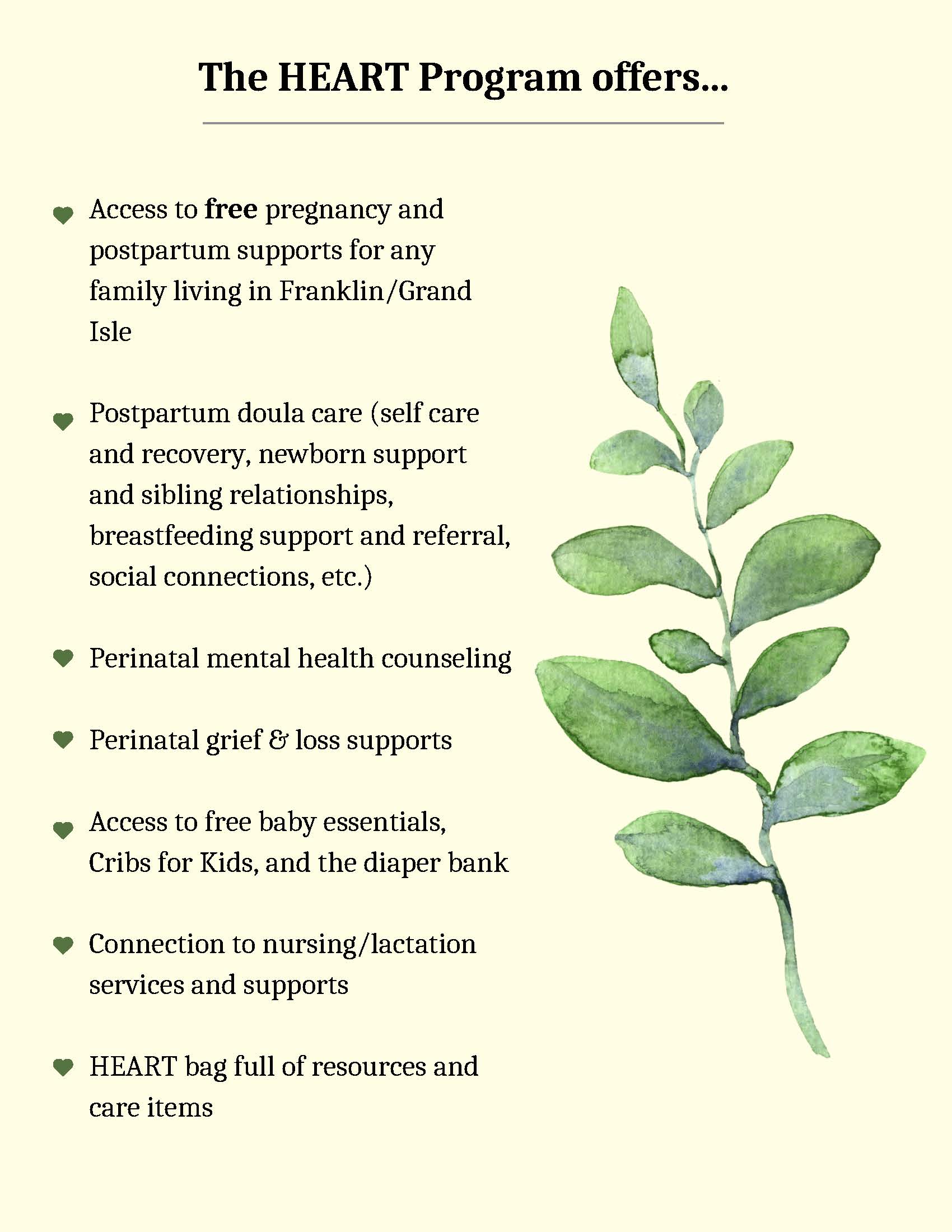HEART Perinatal Support Program


The HEART Perinatal Support Program works to turn the curve on rates of perinatal mood disorders as well as increase knowledge of and access to supports and services for families in Franklin and Grand Isle counties. This is a universal and free program for anyone who has given birth, experienced a perinatal loss, or is supporting a newborn in any capacity.
Perinatal Support Specialists (Postpartum Doulas)
The HEART program has two CAPPA certified postpartum doulas who can offer home visits from birth until 12 months postpartum. Doula support is tailored to the needs of the family and can include (but is not limited to) light household organization, helping with baby while parent catches up on tasks, educating around infant development, supporting self-care, providing connection, and completing referrals as needed around lactation and community resources. Our doulas are also trained in the evidence-based intervention Mothers & Babies which looks to increase self-care, help manage challenging thoughts and emotions, and increase natural supports.
Perinatal Mental Health Counseling
The HEART Program has two Master level therapists who provide individual therapy those who are pregnant or up to 18 months postpartum. Therapy can occur in the home, via telehealth, or in the office. Our clinicians are trained in Mothers & Babies and have various levels of training in other modalities including Cognitive Behavioral Therapy, Dialectical Behavioral Therapy, and Interpersonal Therapy. The clinicians also have been trained in Perinatal Mood and Anxiety Disorders: Components of Care by PSI, and in the Collaborative Assessment and Management of Suicidality (CAMS). This level of support can be helpful for parents experiencing higher levels of stress, anxiety, depression, OCD, processing a traumatic birth, managing relational conflict, and etc.
Counseling for Perinatal Loss
In addition to mental health counseling for the above experiences, the HEART perinatal therapists are also available to support in the event of a loss during pregnancy, during birth, or a postpartum loss. Therapy for a loss can also occur in the home, via telehealth, or at the office. Our clinicians will provide a weighted bear or a miscarriage kit as a soothing and grounding source of support.
DULCE
DULCE is a partnership between the Parent Child Center of NCSS, Timber Lane Pediatrics- Milton, Monarch Maples, and Vermont Legal Aid. Our Family Specialists are members of the pediatric care team and provides screenings, referrals, and support to all families with infants from birth until six months of age. DULCE is a national model of integration of behavioral health with pediatrics. All families with young infants are offered DULCE at Timber Lane Pediatrics in Milton and Monarch Maples in St. Albans.
HEART at NMC OB
In order to increase support during pregnancy and mitigate risks postpartum, HEART now has a Perinatal Family Specialist embedded in the OB at Northwestern Medical Center. The Perinatal Family Specialist meets with pregnant parents in their scheduled appointments to assess needs, complete screenings, and provide referrals as needed.
Groups
CIS Referral Form

 Skip to Content
Skip to Content
